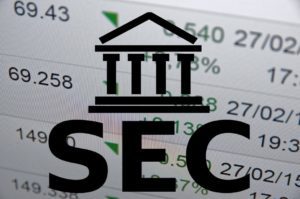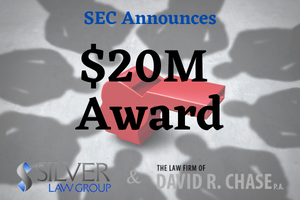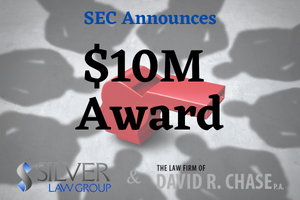 Securities sales is a hard business on a good day. And the pressure to sell and hit a quota is often hanging over many agents’ heads. That’s even more true when there’s a downturned market filled with skittish investors. But “boiler rooms” are another thing entirely. Typically run out of call centers filled with unregistered sales agents, boiler room scams convince unwitting investors into pouring money into worthless investments. And while boiler rooms are an old con, they’ve been getting recent technology updates that have law enforcement around the world taking notice. Continue reading
Securities sales is a hard business on a good day. And the pressure to sell and hit a quota is often hanging over many agents’ heads. That’s even more true when there’s a downturned market filled with skittish investors. But “boiler rooms” are another thing entirely. Typically run out of call centers filled with unregistered sales agents, boiler room scams convince unwitting investors into pouring money into worthless investments. And while boiler rooms are an old con, they’ve been getting recent technology updates that have law enforcement around the world taking notice. Continue reading
Infamous Financial Fraud Cases
 Financial fraud is a serious crime with heavy financial penalties and jail time. Yet people still try to mislead shareholders, bilking investors and destroying companies. Not every financial fraud case ends up on Netflix like biotech entrepreneur and Theranos founder Elizabeth Holmes. But many of the most notorious financial fraud cases are just as fascinating. Continue reading
Financial fraud is a serious crime with heavy financial penalties and jail time. Yet people still try to mislead shareholders, bilking investors and destroying companies. Not every financial fraud case ends up on Netflix like biotech entrepreneur and Theranos founder Elizabeth Holmes. But many of the most notorious financial fraud cases are just as fascinating. Continue reading
How Audits Help Detect Financial Fraud
 People often believe that audits can help root out fraud in cases and that an audit is a magic wand bestowing financial stability upon a company. But an audit is simply an independent examination of a company’s financial statements to ensure that its financial records are a fair and accurate assessment of its transactions. An audit is ultimately only as good as the information given to the auditors. Continue reading
People often believe that audits can help root out fraud in cases and that an audit is a magic wand bestowing financial stability upon a company. But an audit is simply an independent examination of a company’s financial statements to ensure that its financial records are a fair and accurate assessment of its transactions. An audit is ultimately only as good as the information given to the auditors. Continue reading
SEC Amends Complaint Against NS8 For Violating SEC Whistleblower Rules
 What does a fraudulent CEO do when he discovers a whistleblower in his company? In the case of NS8’s founder and CEO Adam Rogas, he impeded the employee’s access to company systems, raided his personal electronic accounts, prevented the employee from contacting the SEC and fired them once discovering that they were reporting the fraud. Continue reading
What does a fraudulent CEO do when he discovers a whistleblower in his company? In the case of NS8’s founder and CEO Adam Rogas, he impeded the employee’s access to company systems, raided his personal electronic accounts, prevented the employee from contacting the SEC and fired them once discovering that they were reporting the fraud. Continue reading
SEC Awards $20 Million To Whistleblower
 In a recent press release, the SEC announced that it had awarded a $20 million bounty to a whistleblower who provided credible and useful information, which helped the Enforcement Division complete an enforcement action much quicker. Through offering additional information and continuing to assist staff, the SEC’s enforcement action was ultimately successful. Continue reading
In a recent press release, the SEC announced that it had awarded a $20 million bounty to a whistleblower who provided credible and useful information, which helped the Enforcement Division complete an enforcement action much quicker. Through offering additional information and continuing to assist staff, the SEC’s enforcement action was ultimately successful. Continue reading
$10 Million Dollar SEC Whistleblower Provided Substantial Assistance
 In their latest announcement, the SEC has awarded $10 million to a whistleblower who provided considerable assistance that led to a successful enforcement action.
In their latest announcement, the SEC has awarded $10 million to a whistleblower who provided considerable assistance that led to a successful enforcement action.
The whistleblower met with SEC staff twice and brought them significant information. The charges in the enforcement action were closely aligned with the whistleblower’s allegations, which were essential to the SEC’s investigation. Continue reading
FBI And SEC Going After $100 Million Fraud Scheme
 On September 26, 2022, the Federal Bureau of Investigation arrested three men for running a $100 million fraud based out of Hometown International, the corporate owner of a small New Jersey deli.
On September 26, 2022, the Federal Bureau of Investigation arrested three men for running a $100 million fraud based out of Hometown International, the corporate owner of a small New Jersey deli.
According to the Securities and Exchange Commission (SEC), it was a classic “pump and dump” scheme. While the deli had less than $40,000 in annual revenue, the defendants claimed Hometown had a market capitalization of $100 million. Continue reading
SEC Announces New Crypto Office
 The Securities and Exchange Commission (SEC) announced the creation of two new offices—an Office of Crypto Assets (OCA) and an Office of Industrial Applications and Services (OIAS)—within its Division of Corporation Finance’s Disclosure Review Program (DRP). While the offices haven’t yet opened, it’s already worth understanding their significance and expected roles. Continue reading
The Securities and Exchange Commission (SEC) announced the creation of two new offices—an Office of Crypto Assets (OCA) and an Office of Industrial Applications and Services (OIAS)—within its Division of Corporation Finance’s Disclosure Review Program (DRP). While the offices haven’t yet opened, it’s already worth understanding their significance and expected roles. Continue reading
Bitcoin And Fraud—What’s the Connection?
 A lot of the initial appeal of cryptocurrency came from the idea that the crypto’s technology is a more secure, anonymous form of digital transfer. So why then do the Securities Exchange Commission (SEC) and other agencies keep warning consumers about Bitcoin-related frauds? Continue reading
A lot of the initial appeal of cryptocurrency came from the idea that the crypto’s technology is a more secure, anonymous form of digital transfer. So why then do the Securities Exchange Commission (SEC) and other agencies keep warning consumers about Bitcoin-related frauds? Continue reading
All U.S. Crypto Exchanges Under SEC Investigation
 Earlier this year, rumors circulated that the U.S. Securities and Exchange Commission is investigating cryptocurrency exchange Coinbase Global Inc. In July of 2022, the U.S. Securities and Exchange Commission began a probe into whether Coinbase improperly allowed Americans to trade digital assets that should have been registered as securities. Continue reading
Earlier this year, rumors circulated that the U.S. Securities and Exchange Commission is investigating cryptocurrency exchange Coinbase Global Inc. In July of 2022, the U.S. Securities and Exchange Commission began a probe into whether Coinbase improperly allowed Americans to trade digital assets that should have been registered as securities. Continue reading
 SEC Whistleblower Lawyer Blog
SEC Whistleblower Lawyer Blog

